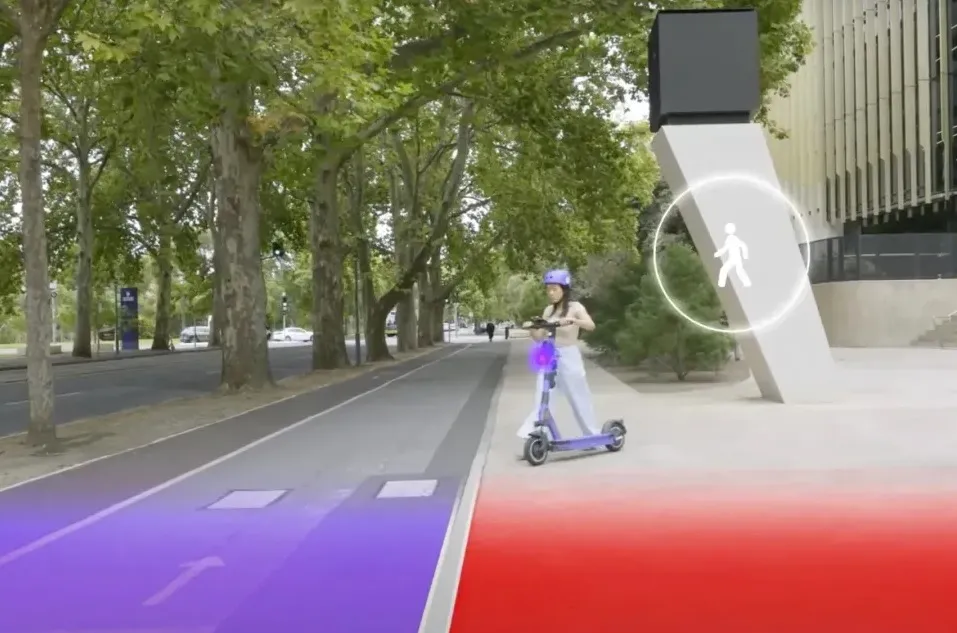
Micromobility company Beam has partnered with Drover AI to bring footpath detection and speed limiting technology to the Australian state of Victoria.
A fleet of 150 e-scooters, fitted with Beam’s Pedestrian Shield technology, powered by Drover AI's PathPilot, will operate in the City of Melton.
It means the scooters will be able to detect and correct illegal footpath riding by slowing the rider down, and giving them verbal warnings.
Beam and Drover will utilise a three-group testing approach, "evaluating the effectiveness of differing real-time rider feedback in influencing rider behaviour".
50 e-scooters will be integrated with full Pedestrian Shield technology, featuring both audio alerts and real-time speed adjustments on footpaths, delivering a warning about illegal footpath riding and slowing the e-scooter down.
50 e-scooters will be integrated with partial Pedestrian Shield technology, delivering audio alerts only should the rider attempt to ride on the footpath, but with no speed change.
The final 50 e-scooters will serve as the control group, with the technology detecting rider interaction with differing road surfaces but delivering no real-time feedback.
Beam says its standard rider enforcement and education programme will be in place across all 150 e-scooters.
Beam general manager (ANZ) Tom Cooper explains: “Through this trial, we aim to highlight the impact of our advanced rider enforcement technology, and determine the best approach to positively influence rider behaviour when on an e-scooter."
Different states in Australia have different legislation governing micromobility vehicles, but Beam says Pedestrian Shield can be adapted to different riding rules - for example, to enforce lower speeds on footpaths or stop the Beam altogether.
“The trial will help us understand the best combination of real-time rider prompts and trip intervention to support safe e-scooter use," Cooper adds.
Drover CEO Christian Scheder-Bieschin says: “Helping riders comply with riding and parking regulations makes everyone safer and provides a more orderly programme."
He adds that "granular insights on rider behaviour and infrastructure usage" will be revealed during the deployments of Drover technology.”
The trial aims to gather empirical data showcasing the efficacy of the additional technology in rider education and enforcement, and observe the impact on rider compliance.
Beam and Drover will publish a whitepaper with the results to guide councils and policymakers across Australia in adopting new technologies in upcoming shared micromobility programmes.
The firms say the data will also serve "to inform policymakers on the interaction between micromobility and other road users such as pedestrians and cars, to provide insights into infrastructure improvements that can support the growing number of active transport modalities on the roads".








